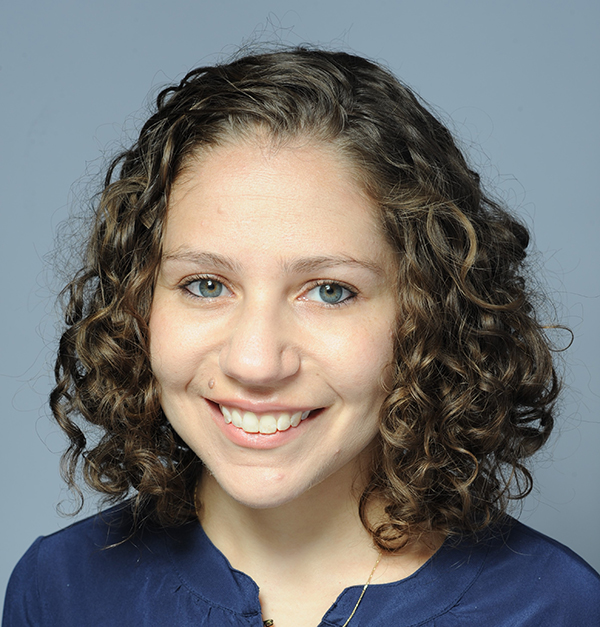There’s a Reason it’s Called Primary Care
Meet one of our Primary Care physicians to learn their important role in preventing illness
NYC Health + Hospitals has more than 900 primary care physicians working at our hospitals and more than 200 Gotham Health Clinics. They are a tremendous resource, and often the first line of defense when you are not feeling 100% or just need that annual physical.

Associate Chief of Ambulatory Care
NYC Health + Hospitals/Woodhull
To learn more about the important role of Primary Care, we spoke with Dr. Jillian Diuguid-Gerber, MD, PCP and Associate Chief of Ambulatory Care at NYC Health + Hospitals/Woodhull in Brooklyn.
Dr. Diugid-Gerber studied at Columbia University’s Vagelos College of Physicians and Surgeons, then did her residency at the NYU/Bellevue Internal Medicine Primary Care Residency program. She was in the inaugural class of the NYC Health + Hospitals Clinical Leadership Fellowship program, and founded the Woodhull Safety Net Clinic for people experiencing homelessness, and then becoming the director of Adult Primary Care Practice before her current job.
Q: First of all, why did you decide to be a primary care physician?
JDG: I decided to be a primary care physician because I love ongoing, longitudinal relationships with my patients. Getting to know them, their families, their stories. I like being there for them in times of need, bearing witness to their humanity, being a listening ear. I like problem solving and creativity, and being someone that my patients can rely on.
Q: What does a primary care physician do? What does the average visit look like. Is there even such a thing as an average visit?
JDG: A primary care physician does a little bit of everything. I’d say there is no such thing as an average visit.
Q: Do you feel sometimes like you have to be a “Jack of All Trades?” Is it hard to stay on top of so much medical knowledge?
JDG: I definitely feel like a jack of all trades, master of none, but at this point, I am okay with that. I have learned my limits, and I trust my specialist colleagues. I have really good resources when I need to look something up, like UpToDate and OpenEvidence. And working at Woodhull and training at Bellevue and Gouverneur, I have a great network of friends who I can ask for help. I also sometimes like to look things up in the room with my patients. It’s fun to learn together.
Q: What kind of ailments or health issues can a PCP detect, that the patient might often not be aware of? Are you sometimes the first line of defense when something serious is happening?
JDG: PCPs screen for high blood pressure, diabetes, cholesterol, depression, anxiety, infections, cancers, and many other things. All of these things can be health issues that people do not even realize they have, and can be detected at a routine or annual primary care visit. Here at NYC Health + Hospitals we also screen for social needs in primary care, which can also greatly impact people’s health.
Q: What is the current guidance about how often we should be seeing our Primary Care doc? Do we all need an annual physical?
JDG: Not every person needs an annual physical, but most people do. If you take any prescription medications, I would recommend you see a PCP at least every year. If you have diabetes, would see a PCP at least twice a year to make sure your sugars are staying in control. For people with new diagnoses of chronic conditions, we’ll often see people a bit more frequently to get a handle on their diseases, then space things out once things settle out.
Q: We often hear that many people don’t have a regular PCP they check in with, and that they often are going to Emergency Rooms for primary care. How important do you think it is to have a regular PCP, who knows your history and your background?
JDG: I think for people who have multiple medical problems or take multiple medications, having a regular PCP is very important. One important thing that a primary care team can do that an urgent care or emergency room cannot do is act like a quarterback for a patient’s care, helping to navigate through hurdles and connect patients to the right specialists
Q: Also, is going to the ER for ailments a PCP could manage a good idea?
JDG: Going to the ER for something that a PCP can manage is not a good idea. The ER is amazing at what they do, managing crises, medical emergencies, and traumas. But primary care ailments are not their cup of tea. Come to us, we want to take care of your diabetes, your high blood pressure, and your knee and back pain.
Plus, the ER is full of sick people. You don’t want to get the flu or norovirus waiting in the ER for a primary care need.
Q: Tell us what a really rewarding day for you looks like?
JDG: A rewarding day is when my team and I are flowing really well, and I have time to sit and connect with my patients. When I get to listen to them make goals and then tell me how they are going to achieve them. When we get to laugh. There can be a lot of happiness, and silliness in primary care. And that’s where the joy is.
